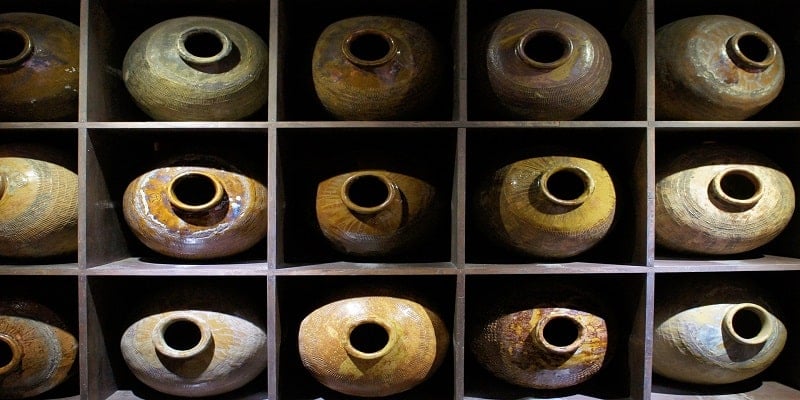What Happens to Cremated Remains?

Cremation services in Mount Summit, IN have become a popular disposition method for Indiana residents. The process is clean, secure, and well-performed, allowing families to safely pick up the ashes of their loved ones within a matter of days after cremation.
Unfortunately, not every decedent has a loving family or close friends to care for their cremated remains. Or, in some cases, decedents die alone, and loved ones are in other states, unaware until months, or even years later, that the decedent is deceased.
The laws for cremated remains are determined by the state. For most Indiana funeral homes, cremated remains are kept for collection for 90 days before being stored in a vault for up to four years. If the ashes remain uncollected for the duration of four years, they are then either scattered or buried in a single mass grave in a special urn provided by the crematorium.
The funeral homes and crematoriums keep names and dispositions on record for the purpose of collection or information. This is how many historians are able to find out the whereabouts of the remains of unclaimed ashes after historic figures are found to be deceased.
What Questions Should You Ask to Better Understand the Cremation Process?
While most funeral homes and crematoriums follow rigid guidelines when it comes to funerary services and disposition methods, they can vary from one place to another. To give yourself peace of mind, here are some questions you may want to ask to help you decide which funeral home or crematorium is right for your needs.
· “May I tour the facility and ask questions of the staff in personal consultations?”
· “Does your facility perform cremations? If not, who performs the cremations, and how long will it take to get the ashes back?”
· “Do you and your staff adhere to a specific set of guidelines and/or code of ethics?”
· “Have there ever been incidents of negligence or accidents during funerary services or disposition methods at your facility?”
These are foundational questions that will give you an idea of how a funeral home or crematorium is run. If you aren’t satisfied with the answers, don’t feel obligated to use that facility as your choice for funerary services or dispositions.
Is It Possible for One Person’s Remains to Get Mixed with Another Person’s Remains?
If a married couple or loved ones die at the same time, it’s possible to have their cremated remains mixed together in a process called commingling. Being commingled means having your ashes mixed in a companion urn with the ashes of someone else.
As for accidental mixings, it’s a common myth that cremated remains can be mixed with someone else’s remains after the cremation process. Funeral directors and crematorium workers take special precautions to prevent the contamination between ashes.
Can Ashes Be Separated into Several Urns for Several Different Loved Ones?
If state laws and religious beliefs allow for cremation as a disposition method, then it also allows for the separation of cremated ashes into several containers. This allows for easier distribution of cremated remains among loved ones.
For example, if the father of six dies, cremated ashes can be dispersed into six urns for each of his children to cherish as a keepsake. The urns can be different and special to represent the special bonds between the father and each of his children.
Are Decedent Ashes a Health Hazard? Will Scattering Cremated Remains Damage the Environment?
Scattering ashes is one of the memorable ways in which people cope with death, loss, and grief. During the cremation process, bones are burned at a high intensity, sterilizing the ashes. Sterilization means that they pose no hazardous threat to anyone or the environment.
You can scatter ashes in multiple locations but be sure you check local laws about funerary services and disposition methods. Some states have designated areas and guidelines for scattering the cremated remains of a loved one.
For instance, the Environmental Agency requires ashes to be scattered at sea up to one mile from the shorelines. If in a river or lake, the flow where you scatter must be upstream to churn the ashes back into nature. If you choose to bury the ashes, they must be placed in a biodegradable box and buried up to 3-feet deep.
Do Cremated Remains Have a Distinctive Odor?
Cremated remains are odorless. Ashes are burned and ground bones, rendering them sterile and without an aroma. However, loved ones that collect the ashes often receive the remains in a sealed box or urn of their choice.
In rare cases, those that have smelled the ashes of a decedent have reported a faint dusty or metallic scent. However, this could be psychosomatic since the expectation could be so strong that they smell something in response to their brain telling them that they will.
Are Coffins Used in the Cremation Process?
By dictionary definitions, coffins are large wooden boxes that house a decedent for burial or cremation.
The use of a coffin isn’t necessary for cremation, but some loved ones will opt for a coffin out of tradition and respect. Many people consider it negative or disrespectful to have their loved ones burned in the common cremation container, which is a sturdy cardboard box.
 Choosing a coffin as a cremation container is more about perspective and perception than enforced disposition laws. The addition of a coffin for cremation is more expensive, but many families are willing to pay the price if they believe it adds dignity to the disposition process.
Choosing a coffin as a cremation container is more about perspective and perception than enforced disposition laws. The addition of a coffin for cremation is more expensive, but many families are willing to pay the price if they believe it adds dignity to the disposition process.
Cremation services in Mount Summit, IN adhere to respect and safety standards, all of which dictate a clean, secure cremation process that follows the guidelines of either the decedent or the ones closest to the decedent. If you have any questions about cremation services or permanent memorialization or anything regarding funerary arrangements, it’s your best bet to speak with a crematory manager or funeral director. Both are there for compassionate, informative consultation that will help educate you and answer any questions you might have, also you may check our testimonials.

